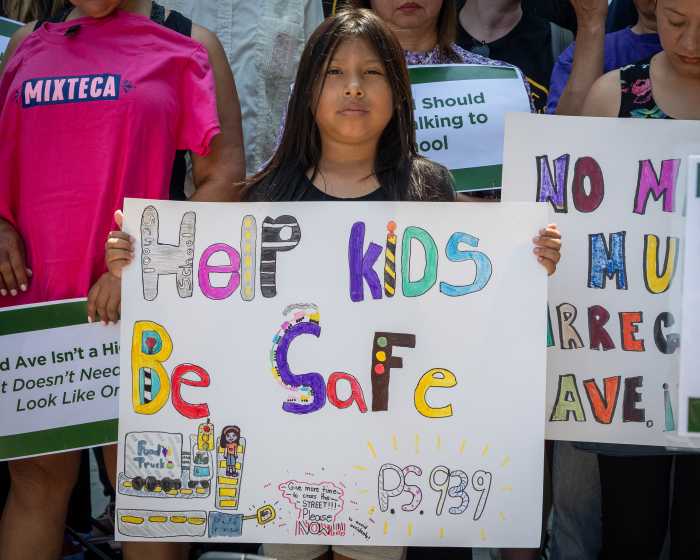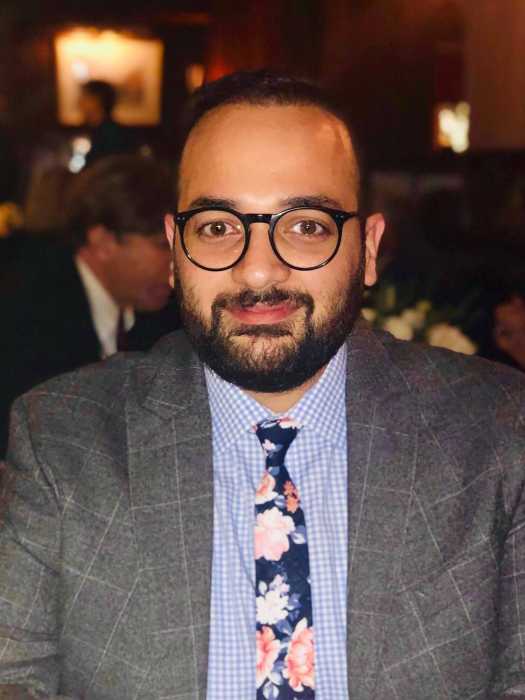Gay Advocates Sift Through A Thin, Contradictory Record
In the spring of 1989, Harriet Miers, who is now the White House counsel and this week was nominated to the Supreme Court by President George W. Bush, was running for an at-large seat on the Dallas City Council.
Seventeen years before, the 1970 graduate of the law school at Southern Methodist University had broken an important gender barrier in Dallas’ legal community by becoming the first woman attorney hired by the prestigious firm Locke Purnell Boren Laney & Neely. In 1985, Miers was the first woman to assume leadership of the Dallas Bar Association.
In seeking a seat on the City Council, Miers clearly had strong backing from Dallas’ conservative business and legal establishment. Thus, it came as something of a surprise when she decided to respond to a questionnaire from the Lesbian/ Gay Political Coalition of Dallas and to appear before the group’s screening panel.
According to Louise Young, a founder of the Coalition who today works in the computer industry and remains active in gay and lesbian politics, candidates for public office in Dallas first began responding to inquiries from the LGBT community in the late 1970s. Yet, more than a decade later, the number of politicians in Dallas who sought endorsements from the gay community could still “be counted on your hands,” in the recollection of Brian Welker, the treasurer of the Log Cabin Republicans of Texas, who first moved to Dallas in 1992.
Miers was not among those trailblazers. In her response, she checked the line that read, “I am not seeking the endorsement of LGPC.”
Still, she did respond to the questionnaire, with at least some openness on gay and AIDS issues, and did make time during her campaign to sit down with the group as well.
Miers’ answer to the group’s first question is arguably the most positive indication that the LGBT community has of where the nominee’s head and heart are on the question of gay rights. Asked, “Do you believe that gay men and lesbians should have the same civil rights as non-gay men and women?” she responded, “Yes.” What has never been spelled out, in the 16 years since that survey, is precisely what Miers meant by that answer. Were additional civil rights measures needed to protect those rights or did she believe that the gay and lesbian community was already protected?
No one this week has been able to come forward with any concrete evidence to answer that question. Yet, her survey response and Miers’ willingness to participate in the LGPC process at all led Tony Perkins—the leader of the Family Research Council and one of the conservatives who has come forward in the past few days to question the nominee’s fidelity to their cause—to charge that she “was helping to legitimize the drive of homosexual organizations for power and influence over our public policies.”
Miers signaled an entirely different mode of thinking when asked whether as a private citizen or as a prospective member of the Dallas City Council she would support repeal of the Texas sodomy statute that was specifically tailored to outlaw same-sex conduct. Her answer to both questions was no. It would be another 14 years—only after the arrest of two gay Houston men for private consensual behavior in the apartment of one of them made the issue a cause célèbre—before the United States Supreme Court overturned that pernicious law.
Asked whether she supported city legislation to bar AIDS or sexual orientation discrimination, Miers indicated she was “willing to discuss the need and make an appropriate decision,” but only after being advised of “all the facts.” She also wrote she needed more information on the need to increase the $550,000 Dallas then spent annually on AIDS services, though she made a point to add that she considered “the AIDS illness as a serious total community problem,” with the word “total” underlined.
The day this week that Miers was nominated to the high court, Young made public a copy of the 1989 survey along with handwritten notes made by another member of the group’s screening committee from the interview held with the nominee. At one point, Miers is quoted saying, “My personal conviction is not consistent with a homosexual lifestyle.” Young said she remembers that moment in the interview, but added that such a comment was “not unusual” for Dallas office seekers at that time.
Still, the question persists why a candidate not seeking the gay group’s endorsement and willing only to make comments that at best signaled open-mindedness rather than any real enthusiasm for gay rights bothered to go through the screening process.
“I believe she probably came at the request of her campaign manager,” Young explained in a telephone interview, noting that the political consultant who handled Miers’ campaign, identified in the press as Democrat Lorlee Bartos, had brought a number of her other clients in front of LGPC. “[Bartos] probably thought it was an opportunity for her. She may not have even known that Miers checked that she wasn’t seeking our endorsement.”
Young said she could not remember any stands Miers took publicly on gay or AIDS issues during the two years she served on the Council. Miers did not seek re-election in 1991, when the City Council changed from at-large representation to a local district format.
Nathan L. Hecht, a law firm colleague of Miers’ who has been mentioned as a sometimes romantic interest of the nominee and who is now one of the most conservative members of the Texas Supreme Court, has recalled, in published reports, that his longtime friend by 1979 had discovered a void in her life that led to her to turn to evangelical Christianity. According to Hecht, the two colleagues spent late evenings in the office discussing spiritual matters—and praying together—and Miers, raised a Catholic, in time joined a evangelical congregation of which he was already a member.
Bartos told The New York Times that when she managed Miers’ 1989 campaign the candidate confided that she had once been supporter of a woman’s right to choose but had changed her views under the influence of her adopted church, where she served on the missions committee, which takes an explicitly anti-abortion stand. Hecht recalled attending several dinners with Miers organized by anti-abortion groups in the early 1990s.
As with gay rights, however, Miers’ current thinking on choice or the 1973 Roe v. Wade ruling on abortion is unknown.
Personal accounts by gay Texans indicate that Miers had good relations with gay and lesbian people she encountered in her professional life. Though Young was unable to recall Miers appointing a gay attorney, since deceased, to a public commission during her time on the City Council, as a published report has indicated, other gay men told Gay City News of their positive experiences with her.
Hector Garcia is an actor in Dallas who is a trustee of the pro-gay Texas Human Rights Foundation.
In an e-mail message, he wrote, “I know Harriet casually… My spouse of 16 years, Craig Holcomb, served on the City Council from 1983 to 1989, leaving [the] Council as Harriet was coming on. We got to know her at that time and found her intelligent, witty, and thorough. She researched issues well in order to take a position. On occasion, she changed her position when her research pointed her in a different way…and I admire that ability.”
Garcia added, “She seemed comfortable around Craig and me, always treating us warmly, with respect and humor.”
Welker, the Log Cabin official, who lives in Dallas, said three attorneys who are part of that group have told him of professional contacts with Miers in which “she was comfortable working with them, knowing that they were gay.” One of the attorneys, Welker said, who did not want to be identified by name, “worked with Miers very closely.”
“They were unanimous in that they think she is a good person,” said Welker, who has not himself met Miers. “She has lots of integrity and is very fair-minded.”
Looking back at Miers’ meeting with the Dallas gay rights group, Welker said, “My personal perspective is that back in ‘89, she was on the cutting edge… that was pretty far forward. And the fact that she spent the time to sit down was remarkable for an establishment person.”
Subsequent to her Council days, however, Miers had no public posture on gay issues. Chris Smith, who works for the Lesbian and Gay Rights Lobby of Texas in Austin, which works “pretty much exclusively on legislative matters,” said, “We have not had any past dealings with Harriet Miers.”
National gay advocacy groups have been cautious in their response to the Miers nomination. Both Lambda Legal and the Human Rights Campaign noted, with some optimism, that Miers wrote in 1989 that gay people should have the same civil rights as others, but also worried about her opposition to repealing the Texas sodomy law. The two groups emphasized the need for greater scrutiny of her record and her positions on key issues. That theme was the exclusive focus of a written statement from Eleanor D. Acheson, the public policy director of the National Gay and Lesbian Task Force:
“This time, the White House and nominee must be more forthcoming,” Acheson’s statement said in part. “This time, stonewalling by the White House and the nominee cannot be an option.”
Andrew Sullivan, the writer and commentator who maintains a blog and is often considered a leading gay conservative, offered a more thoroughgoing critique of Miers on a key issue regarding the war on terror. After dismissing the nominee as a “flunky” and “crony” in the immediate aftermath of Bush’s announcement Monday morning, Sullivan, in a later posting, noted that Miers has been a White House insider for five years, on board at every step of the development of policy toward prisoners held by the U.S.
“The Miers appointment is completely compatible with the need to maintain the president’s approval of detainee abuse—against potential legislative checks and judicial oversight,” he wrote, adding, “The war for America’s soul continues.”
gaycitynews.com


































